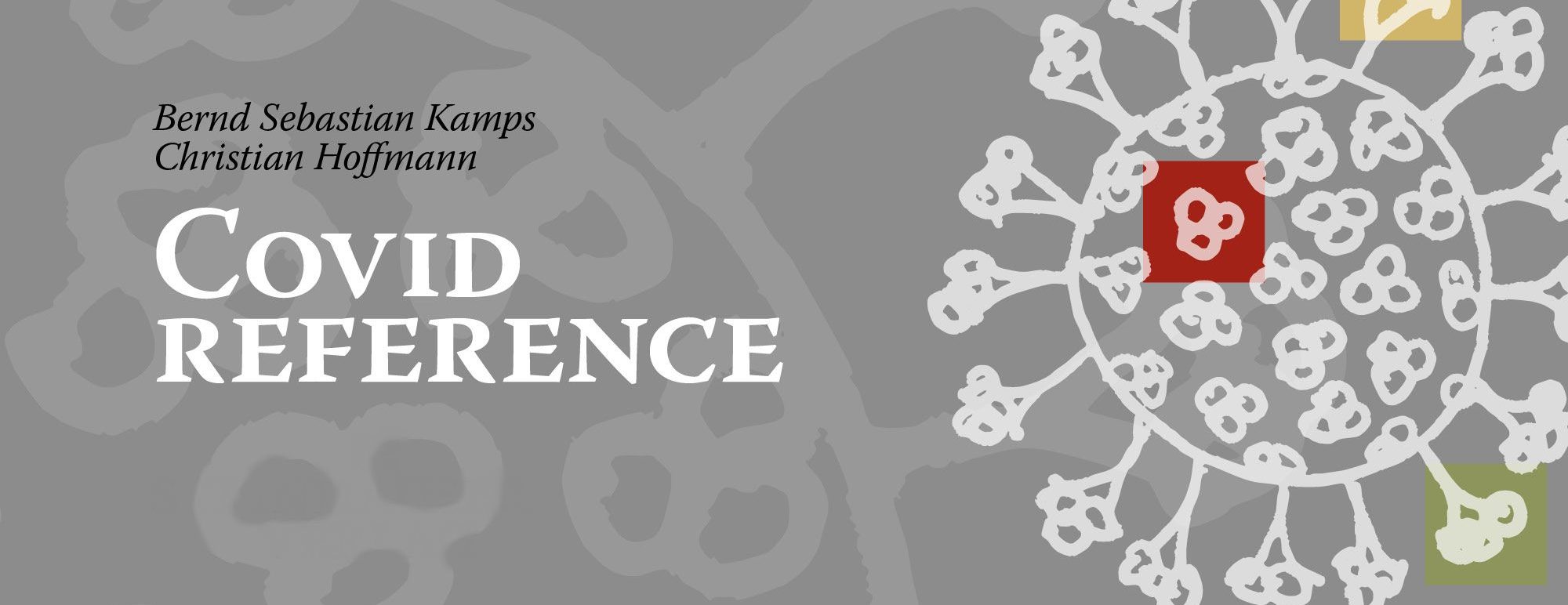The interferon (IFN) response constitutes the major first line of defense against viruses. This complex host defense strategy can, with accurate understanding of its biology, be translated into safe and effective antiviral therapies. In a recent comprehensive review, the recent progress in our understanding of both type I and type III IFN-mediated innate antiviral responses against human coronaviruses is described (Park 2020).
IFN may work on COVID-19 when given early. Several clinical trials are currently evaluating synthetic interferons given before or soon after infection, in order to tame the virus before it causes serious disease (brief overview: Wadman 2020). In vitro observations shed light on antiviral activity of IFN-β1a against SARS-CoV-2 when administered after the infection of cells, highlighting its possible efficacy in an early therapeutic setting (Clementi 2020). In patients with coronaviruses such as MERS, however, interferon studies were disappointing. Despite impressive antiviral effects in cell cultures (Falzarano 2013), no convincing benefit was shown in clinical studies in combination with ribavirin (Omrani 2014). Nevertheless, inhalation of interferon is still recommended as an option in Chinese COVID-19 treatment guidelines. Of note, in the large SOLIDARITY RCT (paper has not yet been peer-reviewed, see above) there was no effect.
- A Phase II, multicentre, open-label RCT from Hong Kong randomized 127 patients with mild-to-moderate COVID-19 (median 5 days from symptom onset) to receive lopinavir/r only or a triple combination consisting of lopinavir/r, ribavirin and interferon (Hung 2020). This trial indicates that the triple combination can be beneficial when started early. Combination therapy was given only in patients with less than 7 days from symptom onset and consisted of lopinavir/r, ribavirin (400 mg BID), and interferon beta-1b (1-3 doses of 8 Mio IE per week). Combination therapy led to a significantly shorter median time to negative results in nasopharyngeal swab (7 versus 12 days, p = 0.001) and other specimens. Clinical improvement was significantly better, with a shorter time to complete alleviation of symptoms and a shorter hospital stay. Of note, all differences were driven by the 76 patients who started treatment less than 7 days after onset of symptoms. In these patients, it seems that interferon made the difference. Up to now, this is the only larger RCT showing a virological response of a specific drug regimen.
- A retrospective multicenter cohort study of 446 COVID-19 patients, taking “advantage of drug stock disparities” between two medical centers in Hubei. Early administration ≤ 5 days after admission of IFN-α2b was associated with reduced in-hospital mortality in comparison with no admission of IFN-α2b, whereas late administration of IFN-α2b was associated with increased mortality (Wang 2020).
Find the entire treatment chapter at https://covidreference.com/treatment
Acalabrutinib – Anticomplement therapies – Azithromycin – Camostat – Chloroquine – Colchicine – Convalescent plasma – Corticosteroids – Cytokine blockers – Famotidine – Favipiravir – G-CSF – Human recombinant soluble ACE2 – Hydroxychloroquine – Ibrutinib – Iloprost – Interferons – JAK inhibitors – Leflunomide – Lopinavir – Monoclonal antibodies – N-acetylcysteine – Oseltamivir – (other) Protease inhibitors – (other) RdRp inhibitors – REGN-COV2 – Umifenovir
